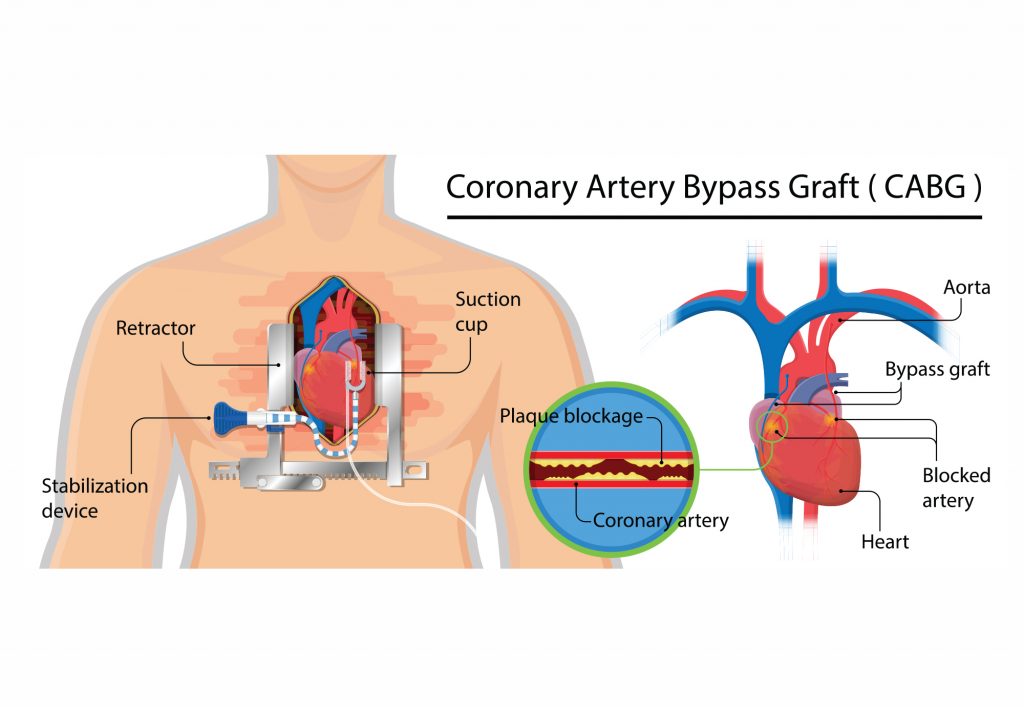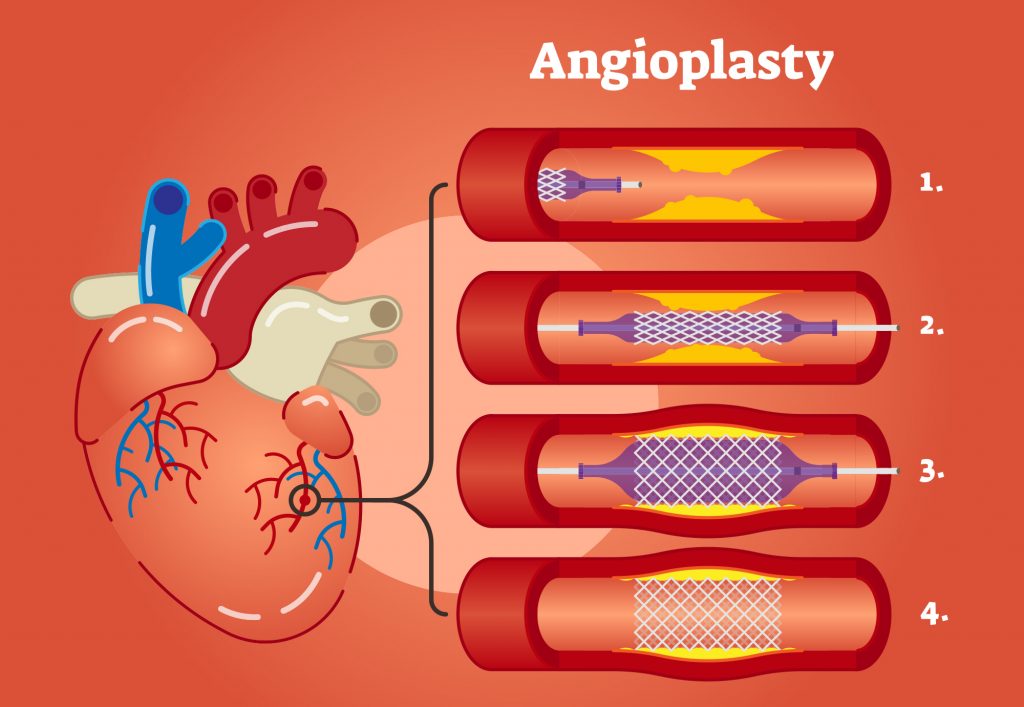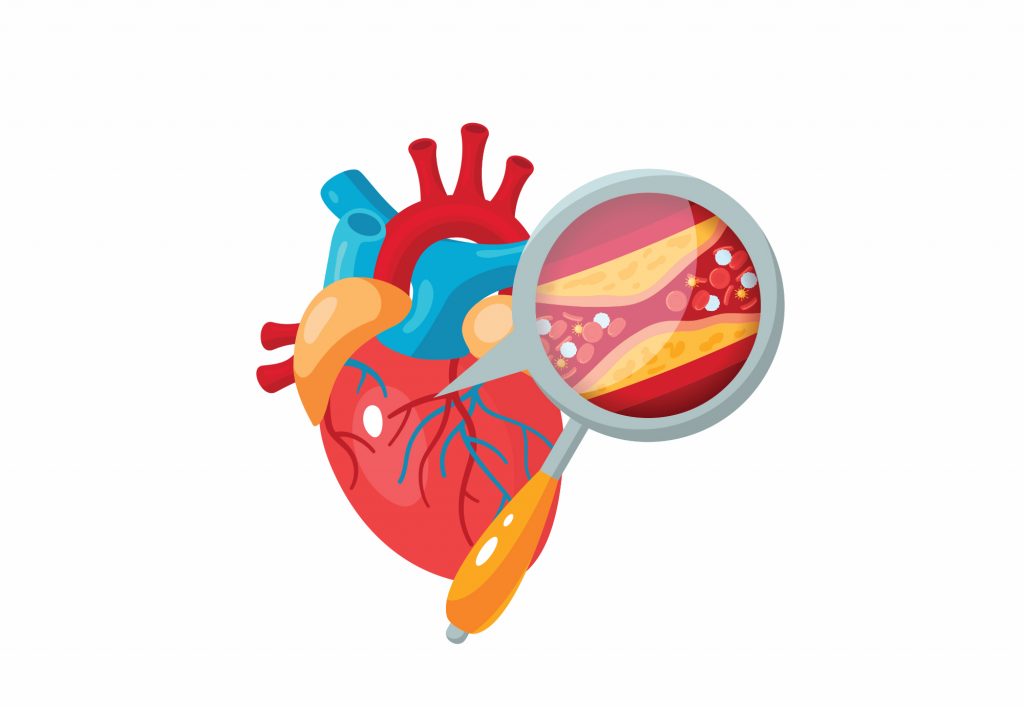The after effects of finding out that one has a coronary artery blockage can be extremely stressful for both the patient and their families. Coming to terms with one’s illness while dealing with various tests, paperwork and hospitalization are just some things to deal with in the short term. Add to this the thought of what lies next, and the situation becomes quite stressful. Fortunately, the ultimate decision regarding the course of therapy rests entirely with the cardiologist. Depending upon various factors the patient may only be asked to make lifestyle modifications to put them on the path to recovery. However, patients with major blockages in their arteries must necessarily undergo either a Coronary Artery Bypass Grafting or an angioplasty.



Bypass: Coronary Artery Bypass Grafting or CABG involves cutting the patient’s chest open, putting them on a bypass machine that will act as their temporary heart. The surgeon then grafts new arteries from either the arms or the legs on to the blocked arteries. This is an invasive method which requires a long recovery period, thus advocated for complex cases with multiple blockages and complications.



Angioplasty: This is a minimally invasive option that requires less recovery time than a bypass. In this procedure, the cardiologist threads a thin catheter through a blood vessel in one’s arm or groin and inserts a balloon and stent through it. This balloon is inflated once it reaches the blocked area, pushing the plaque to the sides, widening the artery and putting the stent in place. Stents are a wire mesh implant that is made of either metal or polymer, with the latter material gaining more favour these days. Drug-Eluting Stents or DESs are part of the new generation of stents which are rapidly becoming the standard of care. These stents are coated with drugs that prevent clots and are designed to dissolve after a set number of years, thus allowing the artery to recover on its own.



What factors will a cardiologist consider while deciding on the best course of treatment?
Deciding on the best course of action is completely your cardiologist’s prerogative and should be made after proper consultation only. One thing to keep in mind is that not all blockages require surgical intervention. Some minor blockages may simply require lifestyle changes and medicines. These medicines decrease the risk of further plaque accumulation, stabilize the plaque, prevent its breakage and thus prevent total occlusion of the vessel. However, no two patients are the same and what will work for one may not work for the other; therefore individualized treatments are a must. The presence of co-morbid conditions like diabetes, high blood pressure etc, are also major factors that help your cardiologist make the final decision. As mentioned earlier surgery is the only option for major blocks. No matter the course of treatment, medications are a must.



Will my stent completely reduce my chances of getting a heart attack in the long-term?
No option provides a 100% guarantee of preventing heart attacks in the long term. Even stents can experience blockage over time. This occurs when the scar tissue starts to grow around the stent as the artery heals. This phenomenon is most commonly experienced with Bare Metal Stents or BMSs. Drug-Eluting Stents, which are the current standard of care, helps prevent such situations. This is done by coating the outer layer of the stent with a drug that prevents clots. These stents also dissolve after a certain number of years, thus allowing the artery to return to its normal curvature and dilation. No matter the type of stent, one will need to continue taking blood thinners to prevent the recurrence of clots over the course of one’s lifetime.
Experiencing a cardiac event can be terrifying for anyone. However, having a good knowledge of what to expect can reduce the fear and stress to a certain extent. So discuss all your doubts and fears with your cardiologist, no matter how insignificant or trivial they may seem. It may make all the difference to your post-procedure recovery process!




